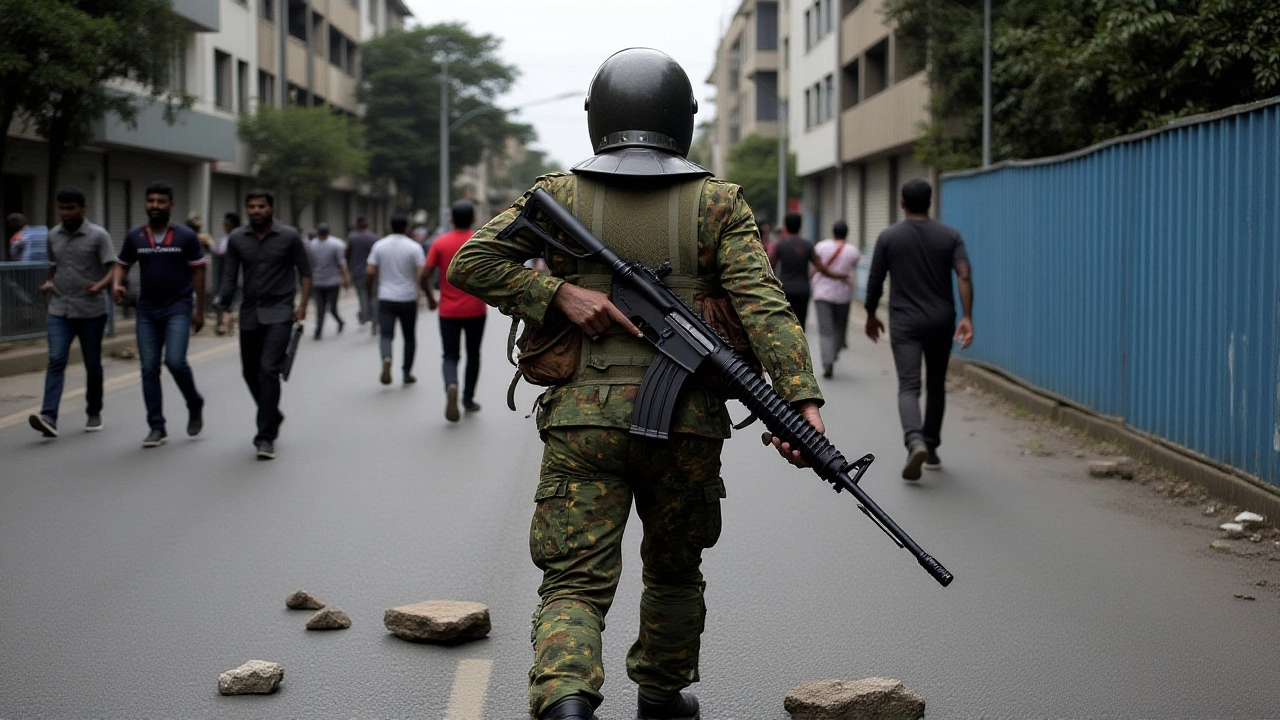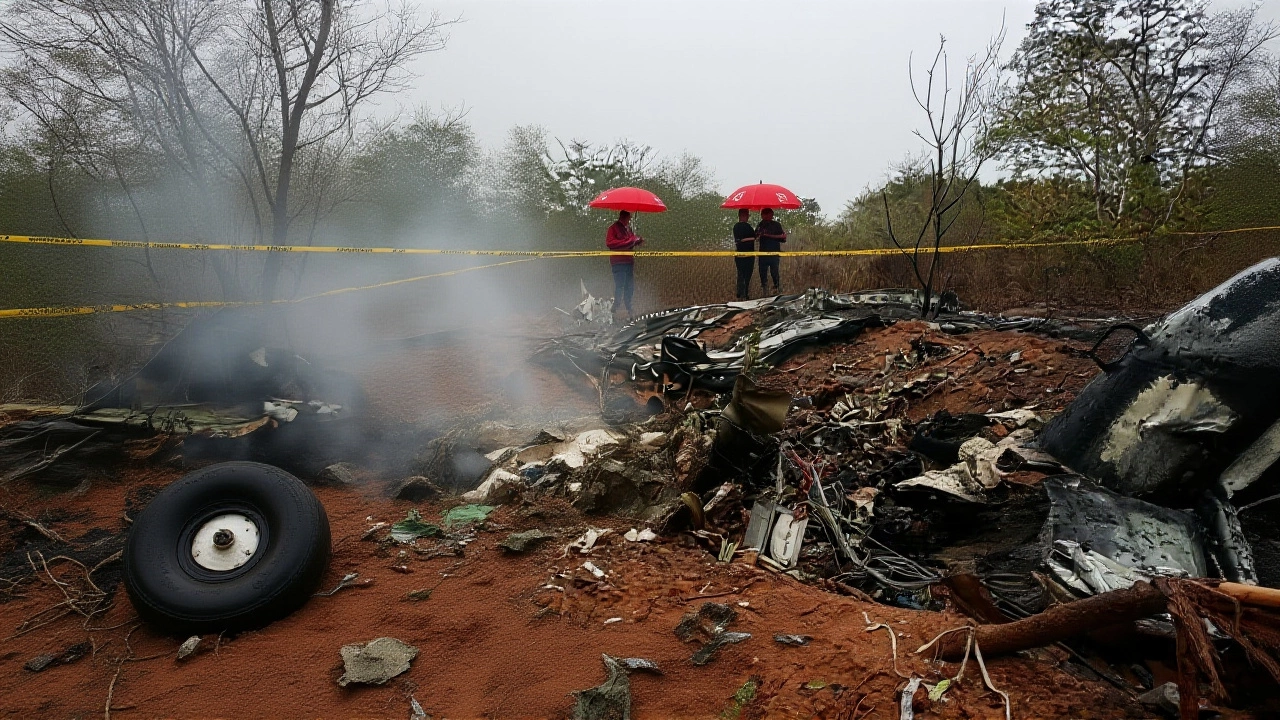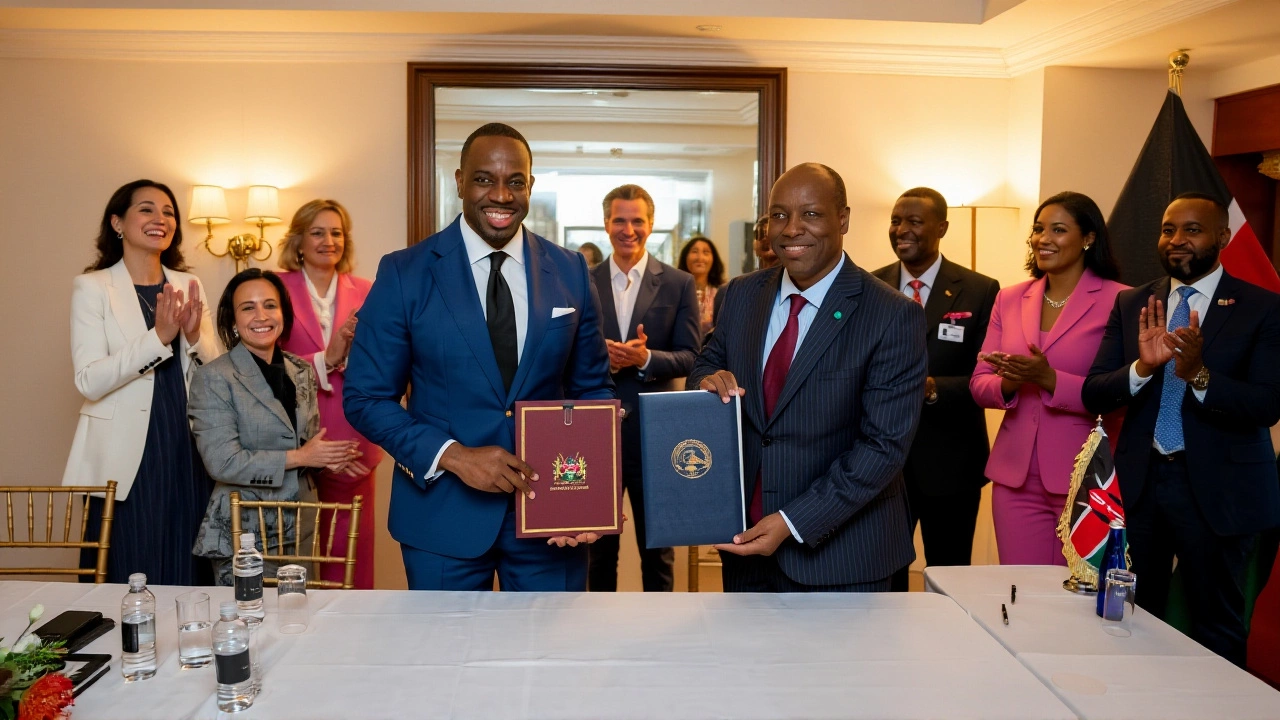Kenya Uses U.S.-Funded Terror Courts to Target Protesters, Rights Groups Say
 Oct, 28 2025
Oct, 28 2025
Seventy-five young Kenyans, most in their early twenties and with no criminal records, now face decades in maximum-security prison—not for plotting bombings or joining al Qaeda, but for throwing rocks at police vehicles during protests against soaring taxes and unemployment. The twist? The charges come from Kenya’s antiterrorism courts, a system built with U.S. taxpayer money to fight international jihadism, not domestic dissent. The shift is alarming human rights groups, foreign observers, and even some American officials who helped design these courts after the 1998 U.S. Embassy bombing in Nairobi and the 2013 Westgate Mall massacre.
From Counterterrorism to Crackdown
The Kenyan government launched these specialized courts five years ago, with direct technical and financial backing from the United States. The goal was clear: fast-track prosecutions against al-Shabaab operatives and other transnational terror networks responsible for attacks that killed hundreds. But now, the same courts are being used to prosecute students, unemployed graduates, and street vendors accused of vandalizing government buildings during nationwide protests against President William Samoei Ruto’s economic policies.The protests, which peaked in late 2023 and early 2024, were fueled by a 20% spike in fuel prices, new VAT levies on basic goods, and the revelation that over $1 billion in public funds had vanished from state coffers in the past year. The government’s response? Criminalize dissent under Kenya’s Prevention of Terrorism Act. Defense lawyers say none of the 75 accused have any ties to terrorist organizations. One defendant, a 21-year-old university dropout, was charged after video showed him smashing a single window at a local county office—no weapons, no threats, no ideology beyond anger at being ignored.
“Excessive” Is the Understatement
Irungu Houghton, head of Amnesty International Kenya, didn’t mince words: “Applying terrorism charges even where you believe individuals have burned down buildings or committed robbery is excessive.” He pointed out that standard charges for property destruction carry a maximum of five years. Terrorism charges? Life imprisonment. Or 20 to 40 years under Kenya’s broad definition of “supporting terrorism,” which includes anything from sharing protest flyers to posting videos online.Human rights monitors have documented at least 12 cases where protesters were denied bail under terrorism statutes, even though their alleged actions were non-violent. In one instance, a 19-year-old was held for 68 days without charge—then suddenly reclassified from “public nuisance” to “conspiracy to commit terrorism.” The timing? Just days before a scheduled parliamentary debate on youth unemployment.

A U.S. Dilemma
The United States has long counted Kenya as one of its most reliable partners in East Africa. Kenyan troops have fought al-Shabaab in Somalia since 2011 as part of the African Union Mission. In 2023, Kenya deployed police officers to Haiti under a U.N. mandate. Washington has poured over $200 million into Kenya’s security sector since 2019, including $12 million specifically to build and staff the antiterrorism courts.But now, U.S. lawmakers are asking uncomfortable questions. “We didn’t fund these courts to jail kids for protesting,” said Senator Lisa Murkowski in a closed-door briefing last month. “If we’re funding courts that punish peaceful dissent, we’re not just wasting money—we’re undermining our own values.”
State Department officials have privately urged Kenya to reconsider the charges, but no public rebuke has been issued. Diplomats fear that calling out President Ruto could jeopardize Kenya’s continued cooperation on intelligence sharing and regional security. But silence, critics argue, sends a different message: that American support comes with no strings attached—even when those strings are human rights.

What’s Next for Kenya’s Youth?
The first trial under the new terrorism charges begins next month in Nairobi. The accused will be tried before a single judge, without juries, and with restricted access to evidence. Legal observers say the proceedings may violate international fair trial standards.Meanwhile, protest organizers say they’re preparing for more demonstrations. “They think locking up a few of us will stop the rest,” said 23-year-old activist Kipkoech Kiptum, who helped coordinate last year’s marches. “But they don’t understand—we’re not just angry. We’re organized.”
With youth unemployment at 38% and inflation still above 9%, the tinderbox hasn’t gone out. And now, the government has lit a match—and handed it to a court built to fight terrorists, not teenagers.
Frequently Asked Questions
How are these terrorism charges different from regular criminal charges?
Under Kenya’s Prevention of Terrorism Act, charges like “inciting violence” or “destroying public property” can carry 20 to 40 years in prison—or life—if convicted. Standard criminal charges for similar acts typically max out at five years. The terrorism courts also allow secret evidence, no juries, and expedited trials, making defense far harder.
Who funded Kenya’s antiterrorism courts, and why?
The U.S. government provided over $12 million between 2019 and 2021 to train judges, build secure courtrooms, and establish protocols for handling terror cases. The goal was to improve Kenya’s ability to prosecute al-Shabaab-linked suspects after deadly attacks like the 2013 Westgate Mall massacre. The funding was tied to strict benchmarks on human rights compliance—benchmarks now being ignored.
Are any of the accused connected to al Qaeda or al-Shabaab?
According to defense lawyers and independent human rights monitors, none of the 75 individuals charged have any verified links to terrorist organizations. Prosecutors have not presented evidence of foreign funding, training, or ideological ties. Most defendants are students or unemployed youth with no prior arrests. The charges appear based solely on participation in protests.
What could happen to U.S. aid if this continues?
U.S. law prohibits funding security programs that violate human rights. If Congress determines the antiterrorism courts are being misused, it could freeze or redirect funding. In 2022, similar concerns led to a pause in aid to a Nigerian counterterrorism unit. Kenya’s status as a major U.S. ally in Africa may shield it for now—but continued abuse could trigger congressional hearings and public pressure.
Why hasn’t the Kenyan government responded to criticism?
The government insists the charges are lawful and necessary to maintain order. Officials claim protesters are “terrorist sympathizers” exploiting economic unrest to destabilize the country. But no evidence has been made public linking any defendant to international terror networks. Critics say the silence reflects a deliberate strategy: use fear to deter future protests, while avoiding direct confrontation with international watchdogs.
Is this happening anywhere else in Africa?
Yes. In Uganda, Tanzania, and Ethiopia, governments have similarly repurposed counterterrorism laws to jail journalists and activists. But Kenya’s case is unique because it involves U.S.-funded institutions originally designed for international threats—not domestic dissent. This blurring of lines sets a dangerous precedent for how global counterterrorism partnerships can be weaponized locally.